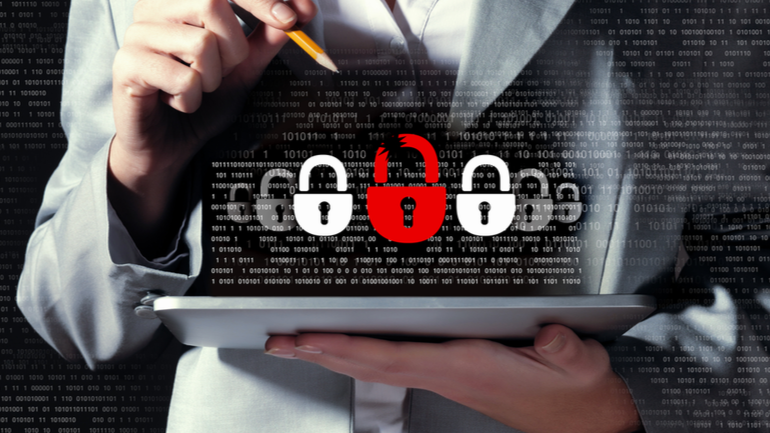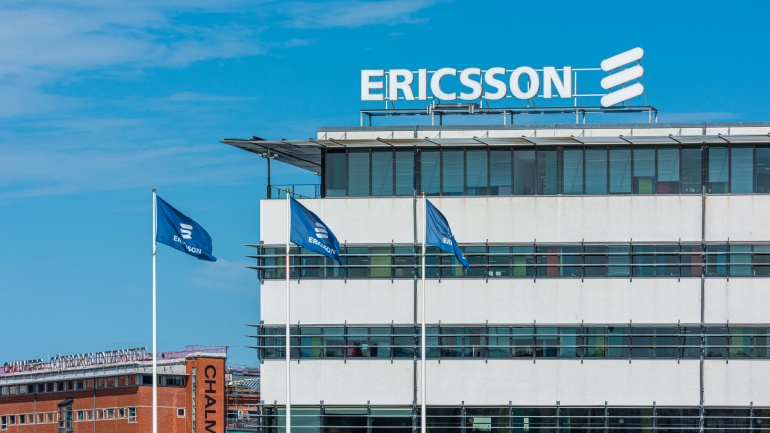The Federal Communications Commission (FCC) has named Kaspersky Lab, a Moscow-based cybersecurity business and developer of popular antivirus software, as one of the organizations posing an unacceptable danger to US national security. Kaspersky is the first Russian company to be added to the list, which is currently dominated by Chinese telecoms companies. The FCC has now released its most recent list of untrustworthy vendors, which includes, for the first time, a non-Chinese company: Kaspersky. Kaspersky joins Huawei Technologies, ZTE Corporation, Hytera, Hangzhou Hikvision Digital Technology Company, Dahua Technology Company, China Telecom (Americas) and China Mobile International USA on the list. Once a company has been included on the list, it is illegal for that organization to use federal subsidies, which are distributed through the FCC’s $8 billion yearly Universal Service Fund, or to buy any of its products or services. Domestic consumers, with the exception of government employees,…
Xiaomi unveils new flagship smartphones The Chinese tech giant Xiaomi has introduced its new flagship smartphones, the Xiaomi 12 and Xiaomi 12 Pro, which will go on sale in China from December 31st. The global launch of the Xiaomi 12 is expected to follow in early 2022. According to the company’s press release, the Xiaomi 12 and Xiaomi 12 Pro are powered by the latest Snapdragon 8 Gen 1 processor, and feature industry-leading DisplayMate A+ OLED displays and powerful imaging capabilities. During the presentation, Xiaomi CEO Lei Jun indicated that the new smartphone would be a direct competitor to the iPhone 13. Read more at: https://tinyurl.com/58byr3fu Telefónica acquires Ericsson 5G equipment to replace Huawei Telefónica, Spain’s leading telecommunications group, has bought 5G network equipment from the Swedish manufacturer Ericsson to replace some Huawei gear that it has deployed in Spain. According to the local newspaper Expansion, Telefónica had initially rolled out…
New security features for Google Workspace and Google Drive Google has unveiled new security tools that include client-side encryption for Workspace and several enhanced data protection features in the platform’s Drive service. The tech giant said there will be new trust rules and labels for Drive to classify files and apply controls based on their sensitivity levels. These added security features are the result of several factors, including Google’s “security first” philosophy, the rapid increase in remote work environments due to the pandemic, and the company’s experience with its BeyondCorp zero trust security model. In addition, Google is also increasing phishing and malware protection in Workspace. Read more at: https://tinyurl.com/ygc7yhw7 Facebook partners with Internet service providers D-VoiS and Netplus Facebook has announced new partnerships in India with Internet service providers (ISPs) D-VoiS and Netplus. These ISPs will use Facebook Connectivity’s Express Wi-Fi platform to provide public Wi-Fi hotspots in various…
Huawei launches HarmonyOS Huawei has officially released its HarmonyOS operating system for all devices. It looks like HarmonyOS will be available on almost all Huawei devices in the coming years, and the company will describe it as an upgrade. As a next-gen smart device operating system, HarmonyOS provides a common language for connecting and collaborating across different devices, giving users a more user-friendly and secure experience. The OS uses distributed technology to meet the diverse needs of all the different devices in a single system, allowing for flexible deployment. Read more at: https://tinyurl.com/mj8j4j99 Vodafone and CityFibre expand their partnership Vodafone and CityFibre have expanded their partnership to offer Vodafone Ethernet services for business customers. In this new partnership, Vodafone will use CityFibre’s Ethernet infrastructure to provide local access to its customers. Therefore, businesses in 12 UK cities and towns will have an alternative and cost-effective High Bandwidth Ethernet service. Under…
Five of Europe’s leading mobile operators – Deutsche Telekom, Orange, Telefónica, Telia and Vodafone – have teamed up to update and launch a new industry-wide Eco Rating system and motivate vendors to minimize the impact that their devices have on the environment. The Eco Rating labelling scheme is designed to supply detailed and accurate information to retailers on the effects that manufacturing, usage, transportation and disposal of smartphones have on the environment. This Eco Rating will encourage operators and customers to rate phones more extensively and underline the need for more sustainable electronic devices. From June 2021, mobile operators will start introducing Eco Rating at points of sale in 24 European countries, including the UK. The labeling system will label phones with scores to show how ecological and environment friendly the appliances are in their lifecycle. The score will be from 0 to 100, the higher the score,…
Tele2 and Nokia to provide SA 5G core network Tele2 has partnered with Nokia to provide its domestic market with a standalone (SA) 5G core network prior to the country’s spectrum auction, which prohibits operators from using ZTE or Huawei infrastructure. Nokia’s triumph over Ericsson’s comes as the company undergoes a comprehensive restructuring in order to focus on key business areas and get back in the global 5G retail market. The operators stated that the contract also covers the installation of the SA 5G core and the facilities for the transmission of voice-over-5G in Latvia, Lithuania and Estonia. The deployment of the infrastructure is expected to start later in 2021. Read more at: https://tinyurl.com/y5pxfu4l Telefónica has agreed to sell its tower portfolio The Spanish telecommunication giant Telefónica has come to the decision to sell its tower portfolio in Europe and Latin America to passive infrastructure specialist American Tower for €7.7…
The European Commission (EC) has appointed Nokia, a Finnish international telecommunications, information technology and consumer electronics company, to supervise Hexa-X, a primary 6G research project aimed at boosting the continent’s progress in developing the technology. The two-and-a-half-year Hexa-X initiative was funded by Horizon 2020, the EU’s research, and innovation program, and will start on January 1, 2021. The project is aimed at connecting the physical, digital and human worlds, firmly embedded in future wireless technologies. The project is led by Nokia, which coordinates the efforts, with Ericsson being assigned as the technical manager. The partners in the consortium are from academia and industry, including service providers, network providers and European research institutes. The partners include Orange, TIM, Telefonica, Intel and Siemens. The Finnish service provider said in a statement that it expects 6G to become commercially operational by 2030, following a normal ten-year intergenerational cycle and taking…
The two companies, Deutsche Telekom Global Carrier and Orange International Carriers, have announced the successful completion of a Proof of Concept (PoC) project to improve IPX services using blockchain technology. According to the statement, they were able to validate that blockchain can be used by operators to expedite the automatic transaction of end-to-end network KPIs between providers. This provides operators with an opportunity to offer improved quality of service (QoS) and enhance network performance forecasting and incident management. The cooperation between the carriers for this initiative was announced back in June. IPX systems are fundamental components for enabling international and domestic roaming services. Also, full-service level agreements (SLAs) on critical IPX networks are essential for ensuring that mobile operators can provide the best network quality. The companies said the results of the study will be presented to the GSMA. Emmanuel Rochas, CEO of Orange International Carriers, said:…
TIM, Telefonica and Claro take over Brazil’s Oi mobile assets in $3.2 billion bid On Monday, TIM Participacoes, Telefonica Brasil SA and America Movil SAB de CV’s Claro won an auction to acquire the mobile operations of Brazil’s Oi SA with a joint bid of $3.23 billion. According to the announcement, TIM will be taking over 40% of Oi’s customers (around 14.5 million people), more than half of the company’s spectrum allocation (49 MHz), and 49% of its mobile sites (around 7,200 locations). As a result, it paid the largest portion of the bid, around $1.44 billion. For $1.08 billion, Telefonica is gaining 10.5 million customers, 43 MHz of spectrum, and 2,700 mobile sites. Claro’s $710 million gained the company around 11.6 million customers and 4,700 mobile sites, but no spectrum. TIM, Telefonica and Claro have also offered Oi a long-term contract to rent its telecom infrastructure. Read more at…
Ericsson has once again raised its year-end estimate for global 5G subscriptions to 220 million, while predicting that more than 1 billion people will have access to next-generation coverage over the same period. The company foresees that four out of ten mobile subscribers will be using 5G services by 2026. In their November 2020 Mobility Report, Ericsson predicted real 5G traction, as well as the progress in the deployment of new features in network and device areas, regardless of the concerns caused by the Covid-19 pandemic. Ericsson believes that 15% of the world’s population, or more than 1 billion people, will live in an area with 5G coverage by the end of 2020. They expect that number to grow to 60% or 3.5 billion consumers by 2026. Ericsson has also added another 30 million to the end-of-year estimate of the number of 5G subscribers, having previously announced the…













